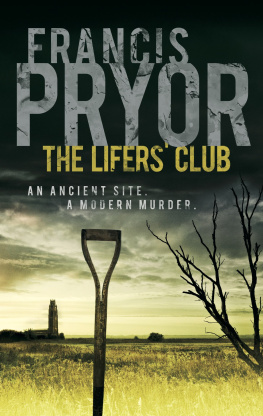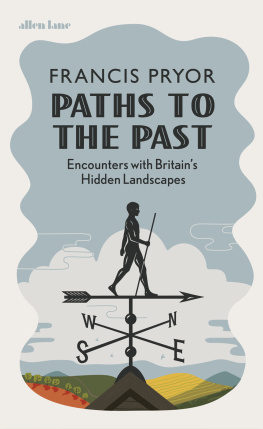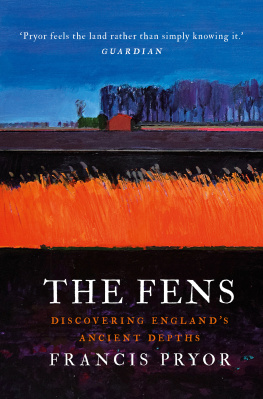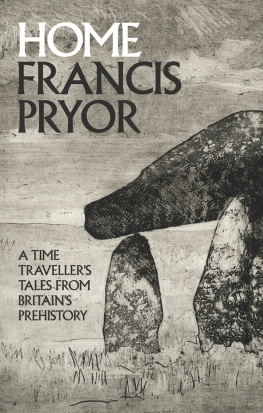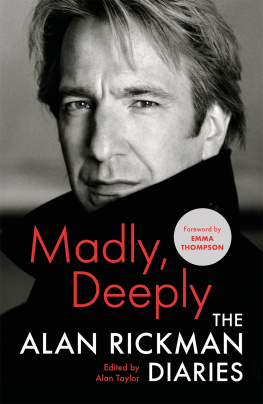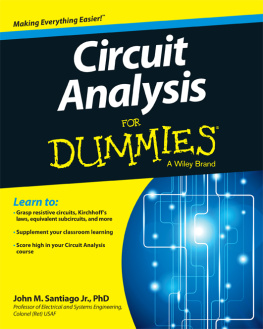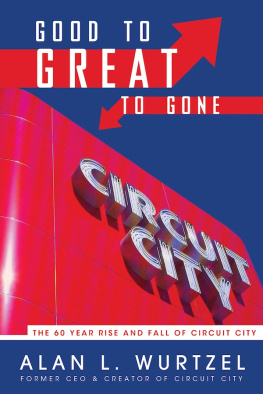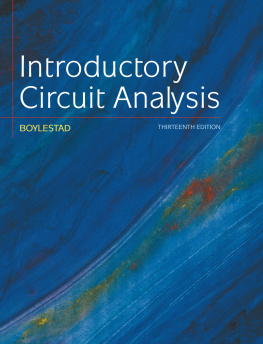The book you are holding came about in a rather different way to most others. It was funded directly by readers through a new website: Unbound.
Unbound is the creation of three writers. We started the company because we believed there had to be a better deal for both writers and readers. On the Unbound website, authors share the ideas for the books they want to write directly with readers. If enough of you support the book by pledging for it in advance, we produce a beautifully bound special subscribers edition and distribute a regular edition and e-book wherever books are sold, in shops and online.
This new way of publishing is actually a very old idea (Samuel Johnson funded his dictionary this way). Were just using the internet to build each writer a network of patrons. Here, at the back of this book, youll find the names of all the people who made it happen.
Publishing in this way means readers are no longer just passive consumers of the books they buy, and authors are free to write the books they really want. They get a much fairer return too half the profits their books generate, rather than a tiny percentage of the cover price.
If youre not yet a subscriber, we hope that youll want to join our publishing revolution and have your name listed in one of our books in the future. To get you started, here is a 5 discount on your first pledge. Just visit unbound.com, make your pledge and type THELF5 in the promo code box when you check out.
One
The building shook. Windows rattled. Just outside in the quarry, five tons of stones smashed into a dumper truck. Next another, and another, then the turbo-charged diesel screamed into life, as the laden dumper pulled away, passing them close by. Mugs of tea rippled. But nobody in the stuffy Portakabin took any notice. For them, it was routine.
They were excavating in a huge gravel quarry in the Fens, about ten miles south-east of Peterborough. There was archaeology everywhere around them: Bronze Age burials, Iron Age and Roman farms, fields and houses. It had been a long project, but soon it was to end. And not before bloody time, Alan thought grimly. For weeks the rain had been pouring down. Outside, on site, the ground was wet and slimy. Lethal. Inside, water had seeped through the door and formed a little puddle, which slowly drained through a crack in the floor, where the doormat should have been. Condensation ran down the windows, two of which were boarded-up after an attack by vandals the previous week. But as site-huts went, it was pretty good.
Alan Cadbury and his twelve diggers were sipping hot drinks, their hard hats and Hi-vis waterproofs hanging, dripping on a row of pegs by the door. One or two read newspapers. No-one said much. They all just wanted to dry off for a few minutes and relax in the steamy warmth, while outside, in the gravel pits washing plant, more stones thundered into yet another dumper, which revved-up and roared away, to shed its load round the back, in the flooded area quarried out the previous year.
Like two of the others in his small team of contract archaeologists, Alan was rolling a cigarette, which hed light up as soon as he went back to work. He knew it was a nasty, stupid habit, and hed tried to kick it dozens of times, but then a few hours, sometimes even a few days later, hed find hed lit another. So he kept them small, and as roll-ups went, this was very slim. More paper than tobacco. Hed only have time to grab a few quick drags while they walked across the quarry to their excavation. Then hed have to stub it out when he reached the trench. Site rules. Radiocarbon contamination.
He swore under his breath as his last fag paper slipped from his hands. Carefully he leant forward to retrieve it from the floor. Earlier that rainy week, theyd put down thick layers of newspaper to absorb the worst of the wet. Thank God, he thought, as he watched his Rizla float down towards the puddle, its landed on a dry patch. He reached out, leaning forward. As his fingers grasped it, his eye was caught by a story on a soggy sheet alongside it:
Honour killer at Blackfen?
Rumours are circulating that the so-called honour killer, Ali Kabul (25) is now at HMP Blackfen. The Governors office was unable to confirm or deny this to our reporter. The victim, Sofia Kabul (16), was the murderers younger sister who was killed at the familys business premises at Flax Hole Depot, Leicester, over seven years ago. The case caused a national outcry. Kabul was convicted at Leicester Crown Court last January and was sentenced [continued p. 32]Thats all there was. Alan glanced up to the top of the sheet: it was page 4 of the Fenland Mercury for two weeks ago. Rapidly he tore it off and read it again, frowning. Then he looked around on the floor for the rest of the paper, but it wasnt there. Nowhere. He sat back and sighed. Flax Hole, Leicester. Must be the same place. Cant be two Flax Holes not possible. Memories started to flood in: another wet season, but winter and much colder. Two teenage kids, peering into the trench, eager to know what the diggers were up to.
Suddenly, another image flashed before him: the stuff of horror films. A young girl, lying in the trench, a faceless man piling soil on top of her lifeless body. He shook his head: stupid idea. Brain playing tricks on him: a waking nightmare. Stick to the facts.
Then his phone alarm went off. Back to work. He put the scrap of newspaper into his pocket.
OK folks, he said, rising stiffly to his feet, trying to inject some energy: Tea-breaks over. Back to it.
Nobody moved.
For Christs sake people, its time we got back
Slowly two figures near the back of the hut rose to their feet, yawning widely. Nobody said anything as they struggled into mud-spattered waterproofs. It was Friday afternoon. POETS day: Piss Off Early Tomorrows Saturday. Hed told them that when they started the site, back in June. Some of the youngest students hadnt heard it before. One or two had even smiled. But now it was late August and the rain hadnt let up for ten relentless weeks.
Fuckin poets day someone muttered resentfully as they kicked the door shut behind them. Theyd had a bellyful.
Alan led them across the stripped acres and back down to the trench. He clenched his hand round the newspaper clipping in his pocket. He knew what he should do. But did he have the balls to do it?
Two
Alan dropped a couple of diggers off in Waney, then took his Land Rover north and east across the county line into Lincolnshire. After half an hour bouncing across subsiding Fenland roads he arrived at the bungalow he currently called home, in the little village of Tubney. There were one or two picturesque houses in Tubney, but this wasnt one of them. A couple of nights ago a friend, whod come home with him after the pub, had described it as: Pokey rooms downstairs and bugger-all upstairs. That about summed it up. Like most 1930s detached houses, it had once possessed a garden, but the last tenants had been scrap dealers and had used it to store old lorry engines which had leaked oil and diesel everywhere; so the garden grew nothing, and on warm days the entire place smelled like a garage. Still, it was

